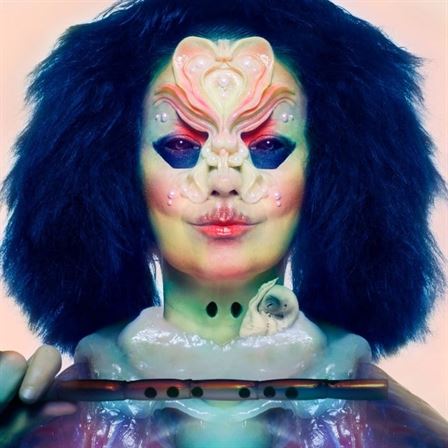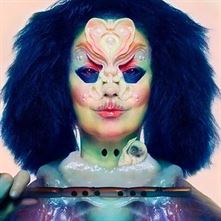With a career spanning over four decades, Björk has both excited and mystified the music industry. Whether it be through her remarkably unique live performances, experimental musical production or off-the-wall personality, the Icelandic pop star has remained an increasingly relevant musician.
With her newest album, Björk collaborates with Venezuelan electronic music producer Arca, who co-produced her previous album “Vulnicura.” In “Utopia” Arca’s influence is much more apparent. He encouraged Björk to take this album in a more experimental direction, which she had only briefly approached in the past.
In an interview with British style magazine “Dazed,” Björk said that their collaboration was “a musical conversation that was cross-generational, cross-Atlantic.” She also said that he encouraged her to go into an area that she somewhat suggested years ago.
With over an hour of music, “Utopia” is Björk longest studio album to date. No part of that runtime feels unnecessarily padded. Arca’s influence on the project merges seamlessly with Björk’s previous musical approaches.
With her previous record “Vulnicura,” Björk brought a dark and introspective dabble to pop music, examining real-world issues such as heartbreak, depression and tragedy. In comparison, “Utopia” rejects the bleakness of her previous album, instead presenting a much more jovial and uplifting work. It still has the same amount of ferocity and creativity found throughout her discography.
Rejecting their usual routine of string-heavy arrangements and melodic hooks, Björk and Arca instead opted to use a mixture of Icelandic flutes, synthesizers and samples of birds chirping, creating an album with a tranquil and lush atmosphere that takes the listener on a peaceful and elated journey.
The opening track “Arisen My Senses” sets the groundwork for the rest of the album. With an out of harmony techno opening and transfixing vocal harmonies, Björk is able to craft a memorable and thought-provoking analysis on a first kiss.
In her interview with FACT Magazine, Björk says making melodies was like “constellations in the clouds,” and that the song was “the most happiest firework that [Arca] had ever done.”
Another notable highlight from the album includes “The Gate,” a slow-burning and eerie ballad, examining the transcendental nature of love.
The title track “Utopia” presents an idealistic look at paradise with heavy usage of bird samples, calming nature sounds and a light flute arrangement, only for the lyrics to describe a bleak and toxic world. The track’s lyrics act as a double entendre, commenting on the nature of once loving relationships becoming toxic and the ever-present climate change problem continually contaminating a beautiful world.
The standout track “Body Memory” is a nearly 10-minute long song, composed of flutes, strings, haunting beat samples and the 60-piece Icelandic choir Hamrahlíðarkórinn. Reflecting on six different stages of life, this song was written as a follow-up to her previous album’s song “Black Lake.”
While “Black Lake” presented a downtrodden and depressive attitude, “Body Memory” acts as an inspirational anthem, encouraging the will to survive and an intuition to carry her through pain.
In an interview with “Dazed” leading up to the release of this album, Andrew Thomas Huang, a video artist who collaborated with Björk, described it as being “about a love that’s even greater. It’s about rediscovering love – but in a spiritual way, for lack of a better word.”
With her latest album “Utopia,” Björk succeeds at creating an intoxicating and introspective listening experience, elaborating on the nature of life and the world we inhabit.




